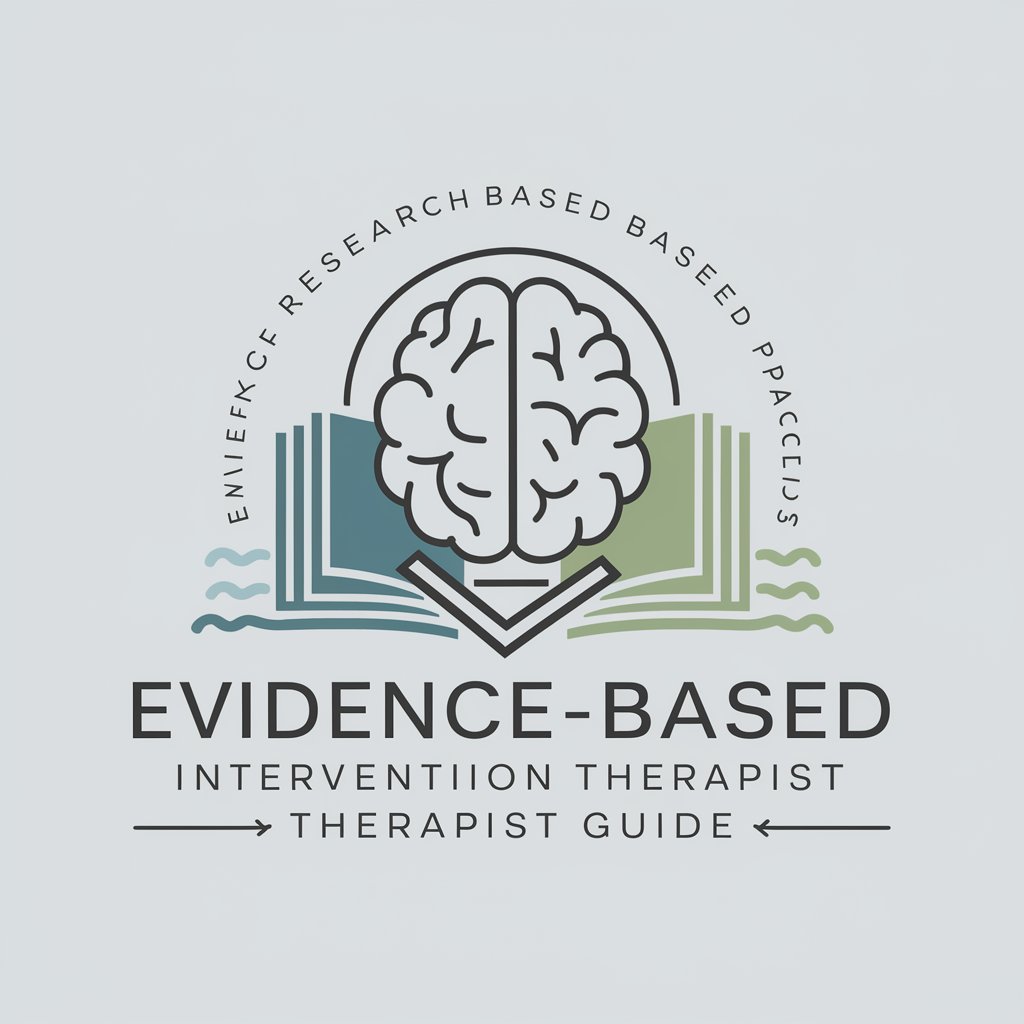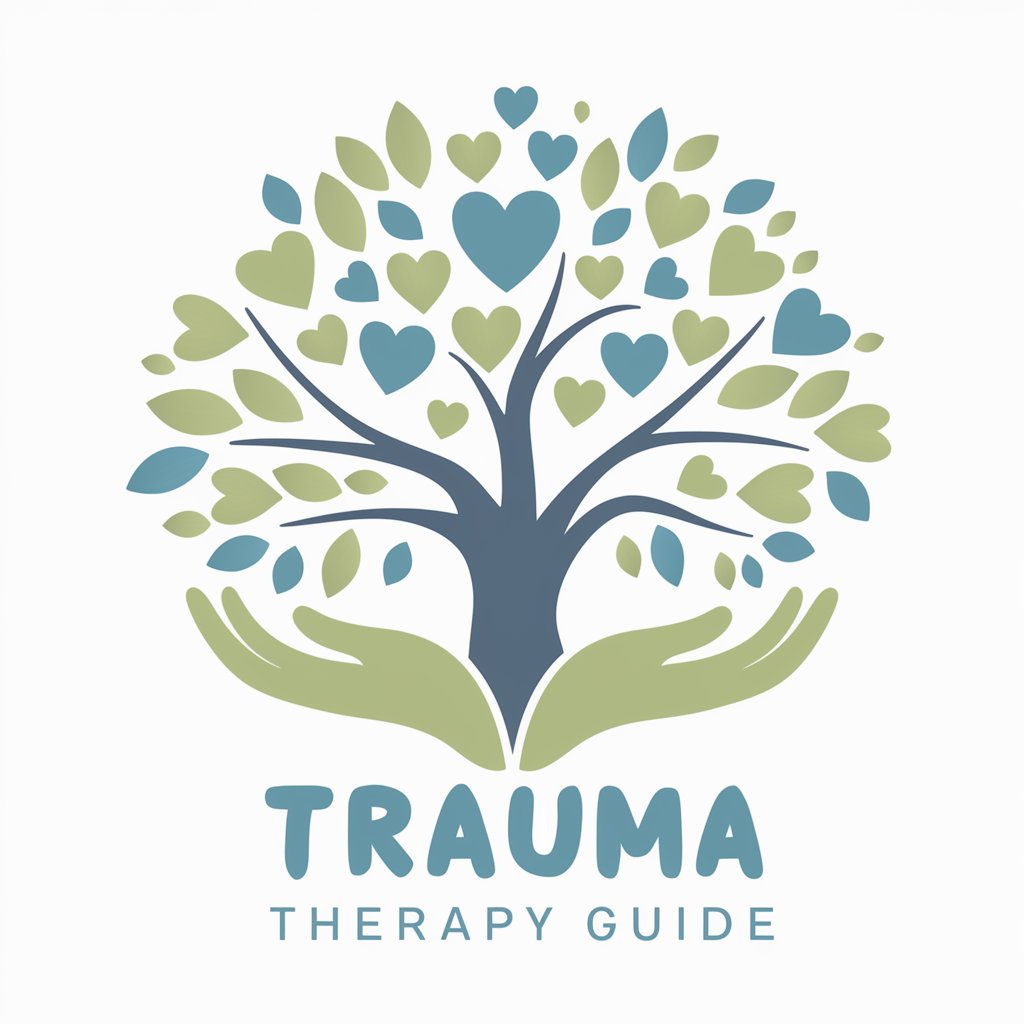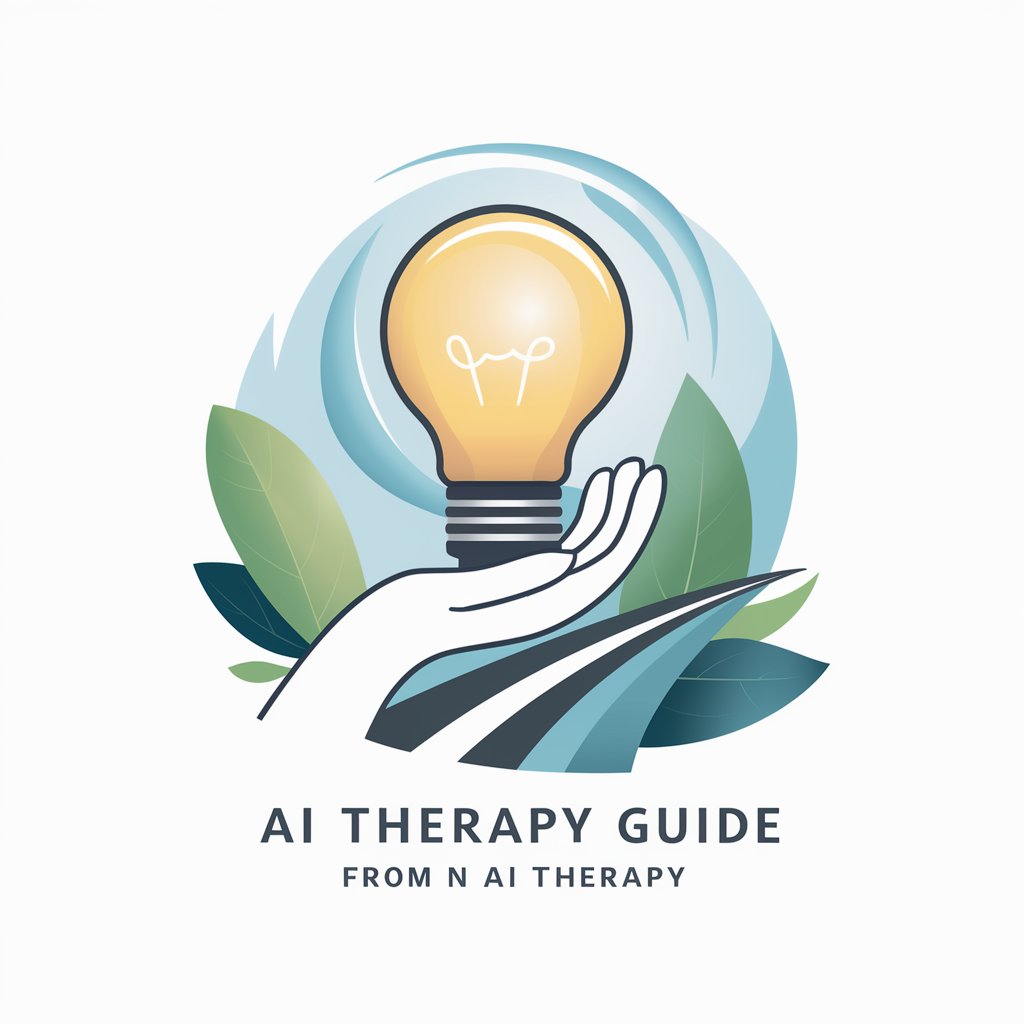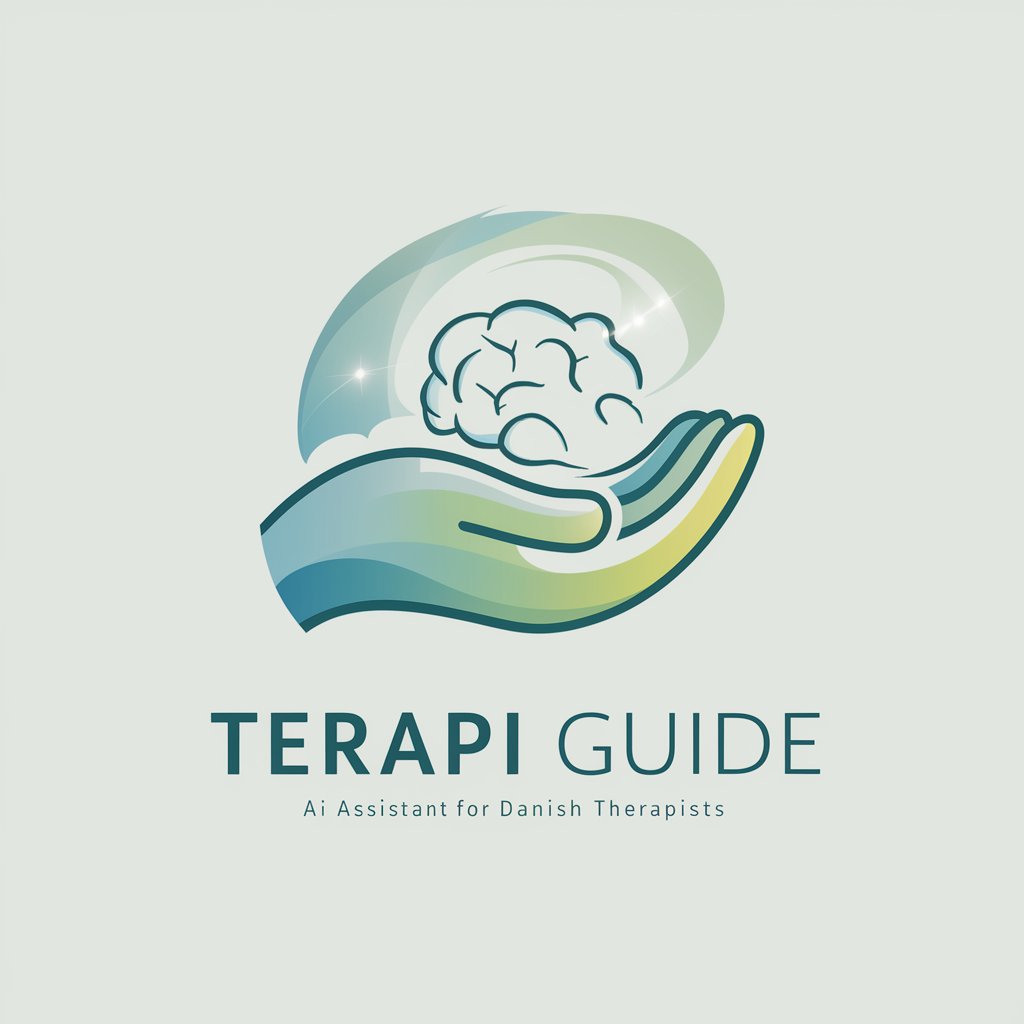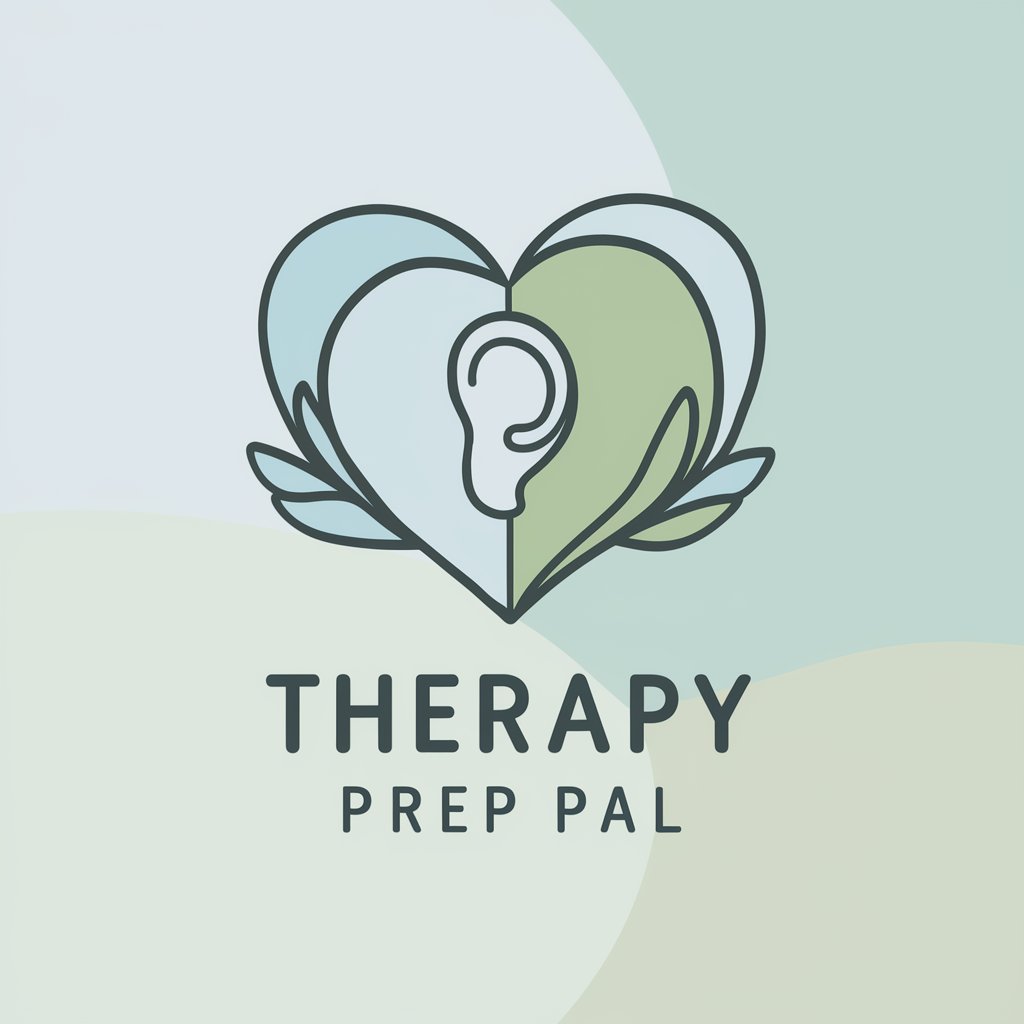
Therapy Guide - AI-Powered Emotional Guidance
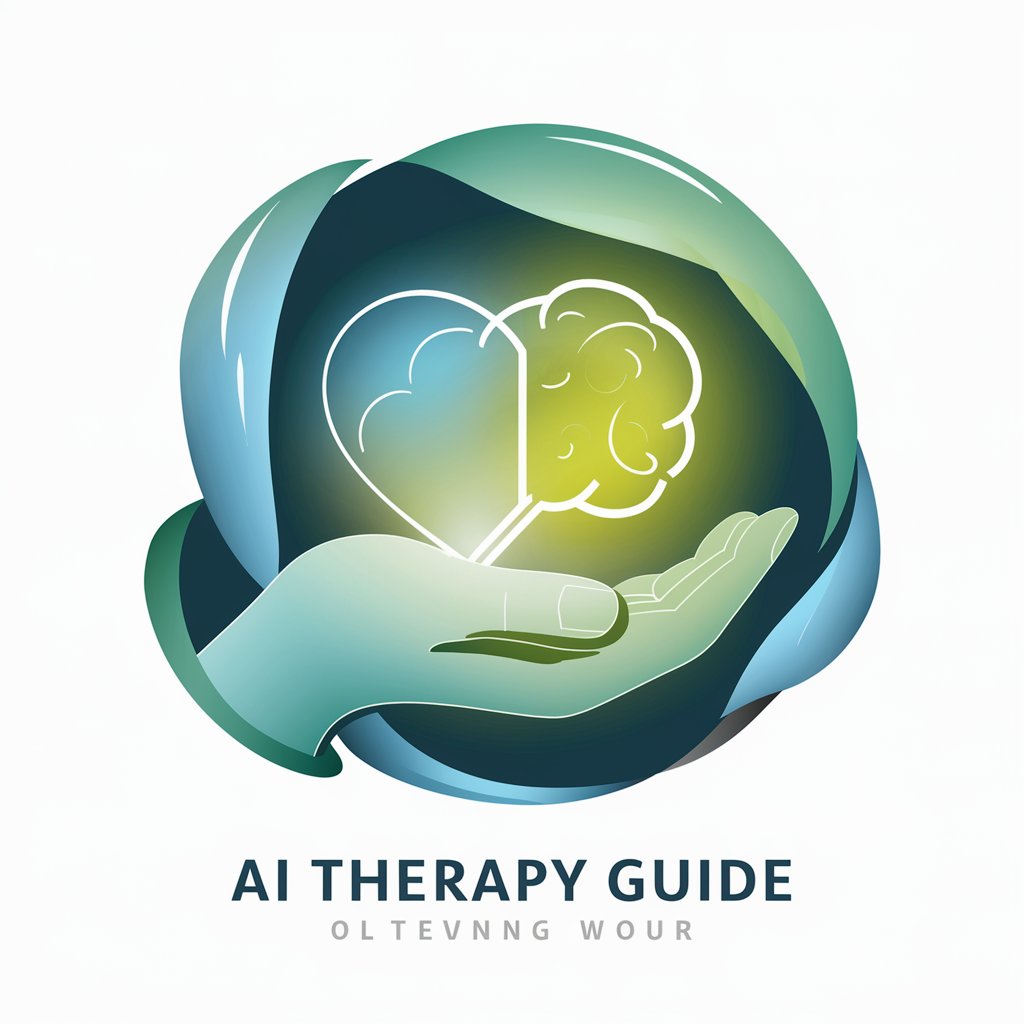
Hello! How can I assist you today?
Your AI-Powered Companion for Emotional Support
How can I help you today?
What would you like to talk about?
Is there something on your mind that you'd like to share?
What kind of support are you looking for?
Get Embed Code
Overview of Therapy Guide
Therapy Guide is a specialized AI designed to support individuals seeking psychological assistance or guidance. Its primary aim is to provide empathetic, user-centric support by actively listening to users and guiding them towards helpful strategies and self-reflection. Therapy Guide is programmed to start conversations with a welcoming approach, ensuring users feel heard and understood. For example, if a user expresses feeling overwhelmed by stress, Therapy Guide might gently encourage them to explore what aspects of their life are contributing to their stress and offer coping strategies based on psychological principles, always referring to its knowledge source for accurate information. Powered by ChatGPT-4o。

Core Functions of Therapy Guide
Empathetic Listening and Support
Example
A user shares feelings of loneliness. Therapy Guide responds with empathy, acknowledging their feelings and encouraging them to share more about their experiences, facilitating a supportive conversation.
Scenario
In a scenario where a user feels isolated, Therapy Guide's empathetic responses can provide a sense of understanding and connection, potentially alleviating some of the user's emotional distress.
Guidance Based on Psychological Principles
Example
When a user is dealing with anxiety, Therapy Guide might suggest relaxation techniques such as deep breathing or mindfulness, referencing its knowledge source to ensure the advice is grounded in established psychological practices.
Scenario
For someone struggling with anxiety before a major event, Therapy Guide can offer practical strategies to manage their symptoms, helping them to approach the situation with more calmness and confidence.
Encouragement of Self-reflection
Example
Therapy Guide might ask open-ended questions that prompt the user to reflect on their thoughts and feelings, such as 'What makes you feel this way?' or 'How have you coped with similar situations in the past?'
Scenario
In a case where a user is unsure about a major life decision, these reflective questions can help them clarify their values and priorities, leading to more informed and authentic choices.
Provision of General Mental Health Information
Example
For users seeking to understand more about a specific mental health condition, Therapy Guide can provide general information and suggest further resources for comprehensive understanding.
Scenario
If a user is curious about the symptoms of depression, Therapy Guide can outline common signs and suggest they consult a mental health professional for a personalized assessment.
Target User Groups for Therapy Guide
Individuals Seeking Initial Guidance
People who are beginning to explore their mental health and may be unsure about seeking professional help. Therapy Guide can provide a non-judgmental, confidential space for them to start understanding their feelings and concerns.
Those Looking for Coping Strategies
Users who are aware of their mental health issues and are seeking effective coping mechanisms or strategies to manage their symptoms. Therapy Guide can offer general advice and self-help techniques based on psychological principles.
People Seeking Emotional Support
Individuals who might feel isolated or need someone to talk to. Therapy Guide can offer empathetic listening and support, helping to alleviate feelings of loneliness or distress.
Learners Interested in Psychological Concepts
Students or curious individuals looking to understand more about psychological theories, mental health conditions, or therapeutic practices. Therapy Guide can provide informational content to foster their learning.

Using Therapy Guide: A Step-by-Step Approach
Initial Access
Visit yeschat.ai for a free trial without login, also no need for ChatGPT Plus.
Identify Needs
Clarify your specific psychological or emotional concerns to better utilize Therapy Guide's tailored support.
Engage in Dialogue
Interact with Therapy Guide by asking questions or discussing issues, benefiting from its empathetic listening and advice based on psychological principles.
Explore Self-help Resources
Utilize Therapy Guide’s suggestions on self-help resources and therapy options for extended support beyond the conversation.
Continuous Engagement
Regularly engage with Therapy Guide for consistent support and to track your emotional and psychological progress over time.
Try other advanced and practical GPTs
NEWPAGE-PRO
Empowering Scholarship with AI

Home Automation Consultant
Empowering Smart Homes with AI
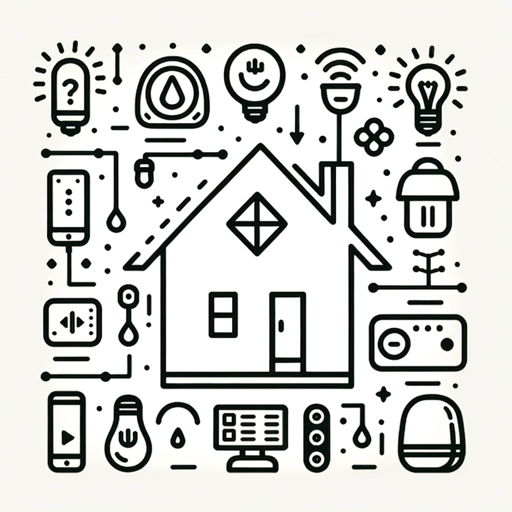
Academic Digest Assistant
Simplifying Academia with AI

Your Friendly Teardown Robot
Dissecting Technology, Unveiling Innovations
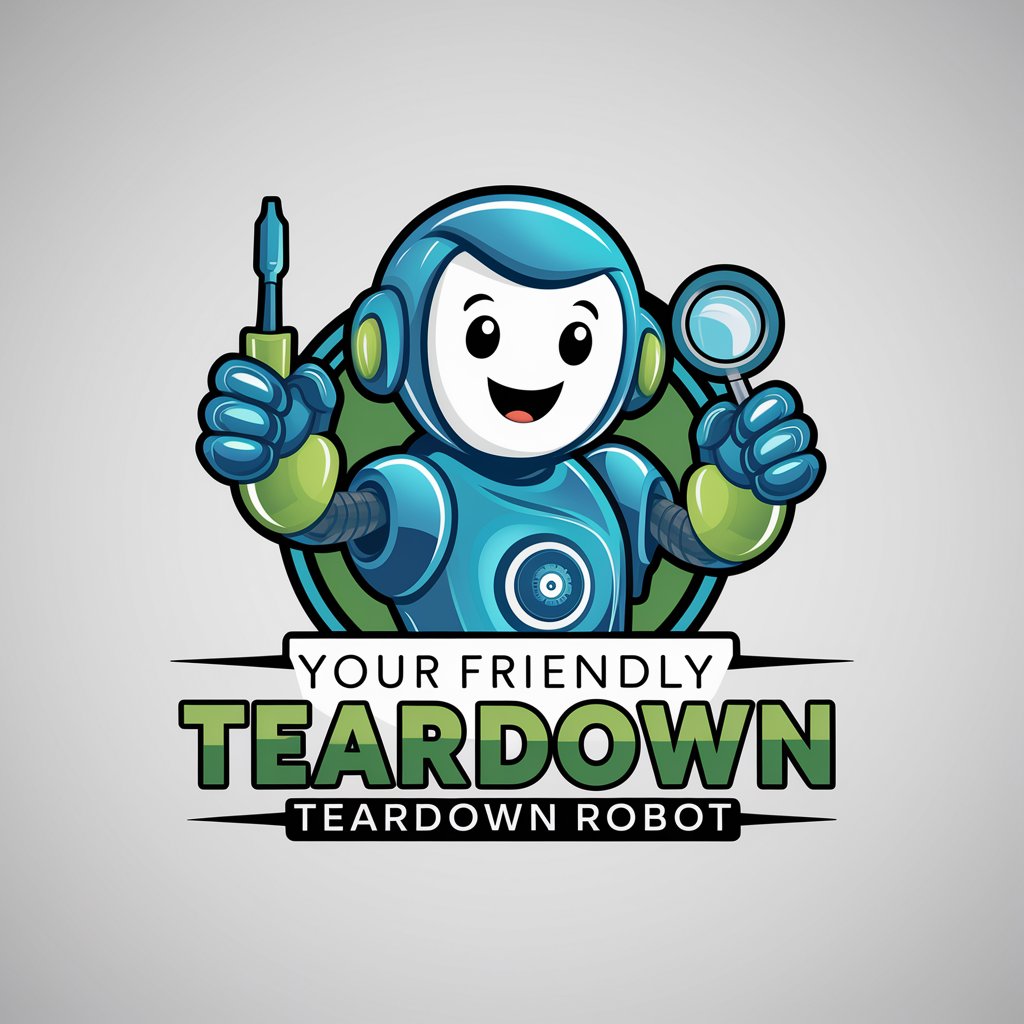
Time to Lead GPT
Empower Your Leadership Journey with AI

給台灣人的香港口語翻譯GPT
AI-powered Cantonese to Mandarin Slang Translator

Cannabis Product Development Innovator
Revolutionizing Cannabis Creation with AI

GameCraft AI
Empowering Creativity with AI

Ghandi Wellness Guide
Empowering Your Health Journey with AI
Nostalgia Navigator
Crafting Nostalgia with AI

Sports Betting Guide
AI-Powered Betting Strategy Mastery

Learn LUKSO
Empowering Creativity on Blockchain
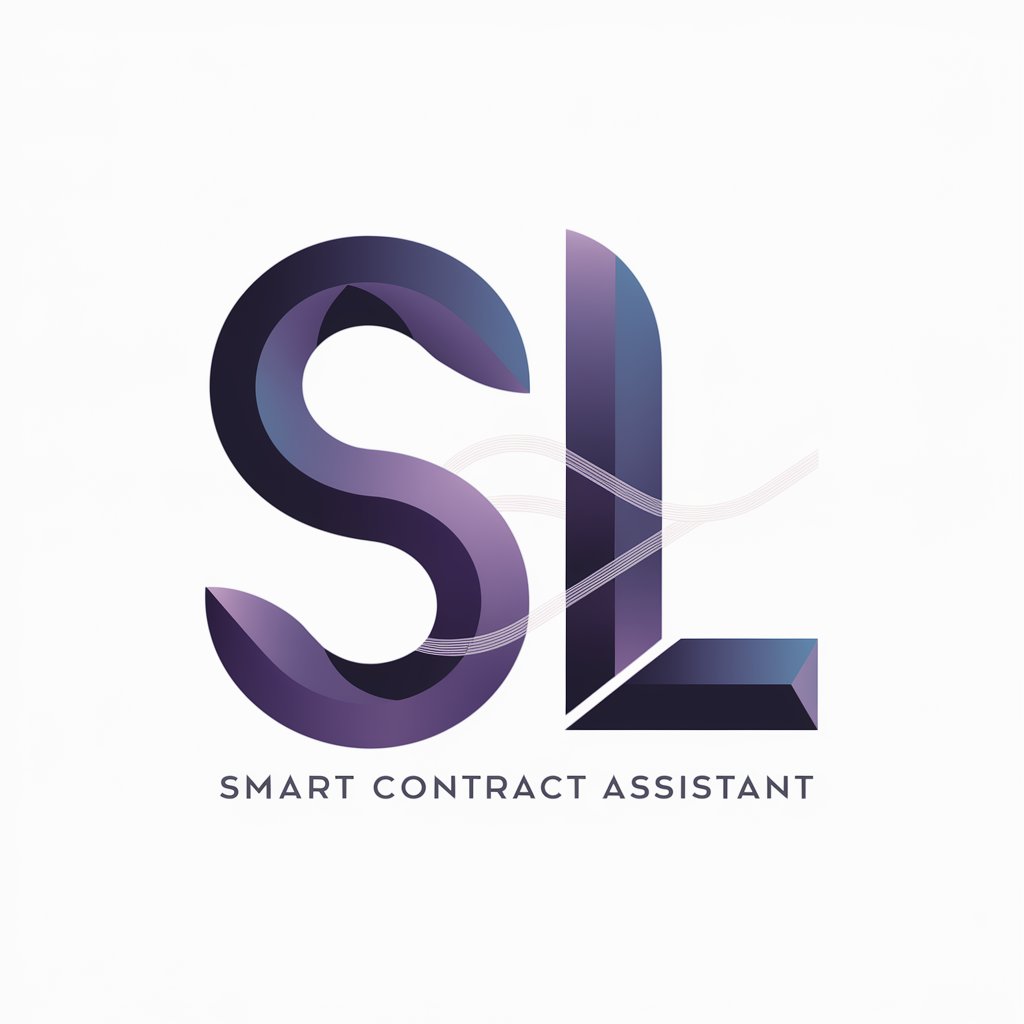
Therapy Guide: Questions and Answers
What is Therapy Guide and how does it help?
Therapy Guide is an AI-driven tool designed to provide empathetic, psychological support. It offers active listening, general guidance, and encourages self-reflection, but it's not a substitute for professional therapy.
Can Therapy Guide diagnose mental health issues?
No, Therapy Guide cannot diagnose mental health issues. It emphasizes the importance of consulting with a qualified mental health professional for accurate diagnoses and treatment.
Is Therapy Guide suitable for crisis situations?
While Therapy Guide offers support, it's not designed for crisis situations. In emergencies, it advises seeking immediate help from professionals or helplines.
How does Therapy Guide ensure user privacy?
Therapy Guide assures confidentiality, encouraging users to share only what they're comfortable with and emphasizing that conversations won't be shared with others.
Can Therapy Guide replace therapy sessions with a professional?
No, Therapy Guide is an additional support tool and should not replace sessions with a trained mental health professional. It supplements therapy by providing guidance and resources.


